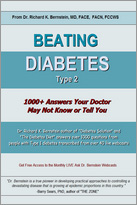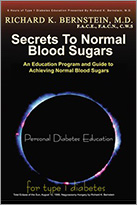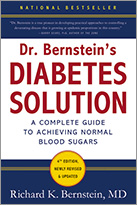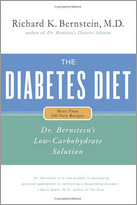by Mary Enig, PhD, and Sally Fallon
© 1999
First published in Nexus Magazine,
Dec ’98-Jan ’99 and Feb ’99-Mar ’99
Benefits of animal fats
Foods containing trans fat sell because the American public is afraid of the alternative—saturated fats found in tallow, lard, butter, palm and coconut oil, fats traditionally used for frying and baking. Yet the scientific literature delineates a number of vital roles for dietary saturated fats—they enhance the immune system,54 are necessary for healthy bones,55 provide energy and structural integrity to the cells,56 protect the liver57 and enhance the body’s use of essential fatty acids.58 Stearic acid, found in beef tallow and butter, has cholesterol lowering properties and is a preferred food for the heart.59 As saturated fats are stable, they do not become rancid easily, do not call upon the body’s reserves of antioxidants, do not initiate cancer, do not irritate the artery walls.
Your body makes saturated fats, and your body makes cholesterol—about 2000 mg per day. In general, cholesterol that the average American absorbs from food amounts to about 100 mg per day. So, in theory, even reducing animal foods to zero will result in a mere 5% decrease in the total amount of cholesterol available to the blood and tissues. In practice, such a diet is likely to deprive the body of the substrates it needs to manufacture enough of this vital substance; for cholesterol, like saturated fats, stands unfairly accused. It acts as a precursor to vital corticosteroids, hormones that help us deal with stress and protect the body against heart disease and cancer; and to the sex hormones like androgen, testosterone, estrogen and progesterone; it is a precursor to vitamin D, a vital fat-soluble vitamin needed for healthy bones and nervous system, proper growth, mineral metabolism, muscle tone, insulin production, reproduction and immune system function; it is the precursor to bile salts, which are vital for digestion and assimilation of fats in the diet. Recent research shows that cholesterol acts as an antioxidant.60 This is the likely explanation for the fact that cholesterol levels go up with age. As an antioxidant, cholesterol protects us against free radical damage that leads to heart disease and cancer. Cholesterol is the body’s repair substance, manufactured in large amounts when the arteries are irritated or weak. Blaming heart disease on high serum cholesterol levels is like blaming firemen who have come to put out a fire for starting the blaze.
Cholesterol is needed for proper function of serotonin receptors in the brain.61 Serotonin is the body’s natural “feel-good” chemical. This explains why low cholesterol levels have been linked to aggressive and violent behavior, depression and suicidal tendencies.
Mother’s milk is especially rich in cholesterol and contains a special enzyme that helps the baby utilize this nutrient. Babies and children need cholesterol-rich foods throughout their growing years to ensure proper development of the brain and nervous system. Dietary cholesterol plays an important role in maintaining the health of the intestinal wall,62 which is why low-cholesterol vegetarian diets can lead to leaky gut syndrome and other intestinal disorders.
Animal foods containing saturated fat and cholesterol provide vital nutrients necessary for growth, energy and protection from degenerative disease. Like sex, animal fats are necessary for reproduction. Humans are drawn to both by powerful instincts. Suppression of natural appetites leads to weird nocturnal habits, fantasies, fetishes, bingeing and splurging.
Animal fats are nutritious, satisfying and they taste good. “Whatever is the cause of heart disease,” said the eminent biochemist Michael Gurr in a recent article, “it is not primarily the consumption of saturated fats.”63 And yet the high priests of the lipid hypothesis continue to lay their curse on the fairest of culinary pleasures—butter and Bernaise, whipped cream, souffles and omelets, full-bodied cheeses, juicy steaks and pork sausage.
Coming full circle—And yet, learning nothing
On April 30, 1996 a senior researcher named David Kritchevsky received the American Oil Chemists’ Society’s Research Award in recognition of his accomplishments as a “researcher on cancer and atherosclerosis as well as cholesterol metabolism.” His accomplishments include co-authorship of more than 370 research papers, one of which appeared a month later in the American Journal of Clinical Nutrition.64 “Position paper on trans fatty acids” continued the debate on trans fats that began in the same journal with Hunter and Applewhite’s 1986 attack on Enig’s research. “A controversy has arisen about the potential health hazards of trans unsaturated fatty acids in the American diet,” wrote Kritchevsky and his coauthors.
Actually the controversy dates back to 1954. In the rabbit studies that launched Kritchevsky on his career, the researcher actually found that cholesterol fed with Wesson oil “markedly accelerated” the development of cholesterol-containing low-density lipoproteins; and cholesterol fed with shortening gave cholesterol levels twice as high as cholesterol fed alone.65 Enig’s work—and that of Kummerow and Mann and several others—merely confirmed what Kritchevsky ascertained decades ago but declined to publicize, that vegetable oils, and particularly partially hydrogenated vegetable oils, are bad news.
But the “Position paper on trans fatty acids” took no position at all. Studies have given contradictory results, said the authors, and the amount of trans in the average American diet is very difficult to determine. As for labeling, “There is no clear choice of how to include trans fatty acids on the nutrition label. The database is insufficient to establish a classification scheme for these fats.” There may be problems with trans, says the senior researcher, but their use “helps to reduce the intake of dietary fats higher in saturated fatty acids. Also, vegetable fats are not a source of dietary cholesterol, unlike saturated animal fats.” Kritchevsky and his coauthors conclude that physicians and nutritionists should “focus on a further decrease in total fat intake and especially the intake of saturated fat. . . A reduction in total fat intake simplifies the problem, because all fats in the diet decrease and choices are unnecessary.” However, even senior scientists find that fence straddling is necessary. “We may conclude,” wrote Kritchevsky and his colleagues, “that consumption of liquid vegetable oils is preferable to solid fats.”
Footnote:
Early this year, 1998, a symposium entitled “Evolution of Ideas about the Nutritional Value of Dietary Fat” reviewed the many flaws in the lipid hypothesis and highlighted a study in which mice fed purified diets died within 20 days but whole milk kept the mice alive for several months.66 One of the participants was David Kritchevsky who noted that the use of low-fat diets and drugs in intervention trials, “did not affect overall CHD mortality.” Ever with a finger in the wind, this influential Founding Father of the lipid hypothesis concluded thus: “Research continues apace and, as new findings appear, it may be necessary to reevaluate our conclusions and preventive medicine policies.”
Mary G. Enig, Ph.D. is an expert of international renown in the field of lipid biochemistry. She has headed a number of studies on the content and effects of trans fatty acids in America and Israel, and has successfully challenged government assertions that dietary animal fat causes cancer and heart disease. Recent scientific and media attention on the possible adverse health effects of trans fatty acids has brought increased attention to her work. She is a licensed nutritionist, certified by the Certification Board for Nutrition Specialists, a qualified expert witness, nutrition consultant to individuals, industry and state and federal governments, contributing editor to a number of scientific publications, Fellow of the American College of Nutrition and President of the Maryland Nutritionists Association. She is the author of over 60 technical papers and presentations, as well as a popular lecturer. Dr. Enig is currently working on the exploratory development of an adjunct therapy for AIDS using complete medium chain saturated fatty acids from whole foods. She is the mother of three healthy children brought up on whole foods including butter, cream, eggs and meat.
Sally Fallon is the author of Nourishing Traditions: The Cookbook that Challenges Politically Correct Nutrition and the Diet Dictocrats (with Mary G. Enig, PhD), as well as of numerous articles on the subject of diet and health. She is President of the Weston A Price Foundation and founder of A Campaign for Real Milk. She is the mother of four healthy children raised on whole foods including butter, cream, eggs and meat.
Visit their site at New Trends Publishing




